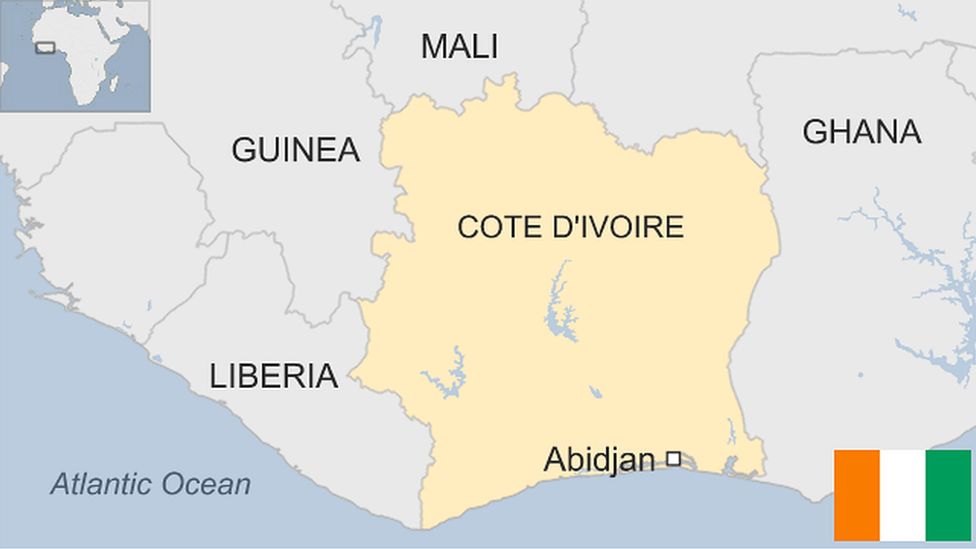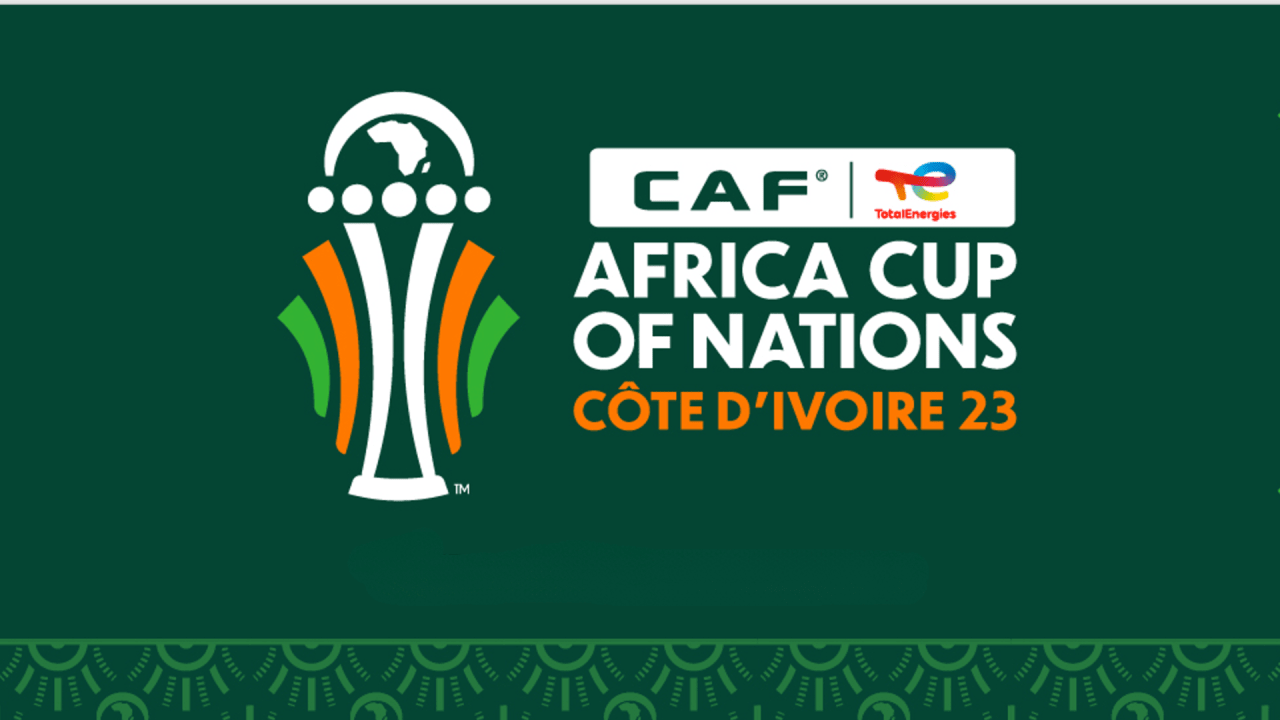Côte d’Ivoire: A West African Nation Unveiled
Related Articles: Côte d’Ivoire: A West African Nation Unveiled
Introduction
In this auspicious occasion, we are delighted to delve into the intriguing topic related to Côte d’Ivoire: A West African Nation Unveiled. Let’s weave interesting information and offer fresh perspectives to the readers.
Table of Content
Côte d’Ivoire: A West African Nation Unveiled

Côte d’Ivoire, officially the Republic of Côte d’Ivoire, is a country located in West Africa. It is bordered by Liberia and Guinea to the west, Mali to the north, Burkina Faso to the northeast, Ghana to the east, and the Gulf of Guinea to the south. The country encompasses a diverse landscape, from the lush rainforests of the south to the savannas of the north, and its coastline stretches over 500 kilometers.
A Geographical and Historical Overview
Côte d’Ivoire’s geographical position and diverse landscape have played a significant role in shaping its history and culture. The country’s coastline has served as a gateway for trade and cultural exchange for centuries. The southern rainforest region, with its rich biodiversity and fertile soils, has been a center of agriculture and resource extraction. The northern savanna, characterized by its dry climate and grasslands, has been home to various nomadic groups and pastoralists.
Historically, Côte d’Ivoire was inhabited by numerous indigenous groups, each with its distinct language, customs, and traditions. The arrival of European explorers and traders in the 15th century marked a turning point in the country’s history. Portugal was the first European power to establish contact with the region, followed by France in the 17th century. France gradually gained control over the territory, establishing a colonial administration in the late 19th century.
The Legacy of Colonialism and Independence
The French colonial period left a lasting impact on Côte d’Ivoire’s political, economic, and social structures. French was established as the official language, and the country’s infrastructure and institutions were built according to French models. The colonial economy was largely based on the exploitation of natural resources, particularly cocoa and coffee, which became major export commodities.
Côte d’Ivoire gained independence from France in 1960. The country’s first president, Félix Houphouët-Boigny, pursued a policy of economic development based on agricultural exports and foreign investment. This period saw significant economic growth and prosperity, earning Côte d’Ivoire the nickname "the Ivory Coast Miracle." However, the concentration of wealth in the hands of a small elite, coupled with political repression and social inequalities, sowed the seeds for future instability.
Challenges and Opportunities in the 21st Century
The end of the Cold War and the decline in global commodity prices led to economic difficulties in Côte d’Ivoire. Political instability and civil conflict further exacerbated the situation, culminating in a civil war that lasted from 2002 to 2007. The war left the country deeply divided and its infrastructure severely damaged.
Despite these challenges, Côte d’Ivoire has made significant progress in recent years towards peace, stability, and economic recovery. The country has held democratic elections, and the government has implemented reforms to improve governance, promote economic diversification, and attract foreign investment. Côte d’Ivoire’s strategic location, its diverse natural resources, and its young and growing population offer significant opportunities for future development.
Understanding the Importance of Côte d’Ivoire’s Location
Côte d’Ivoire’s location in West Africa makes it a crucial link between the region’s diverse economies and cultures. The country’s coastline provides access to international trade routes, while its inland location connects it to the vast hinterland of West Africa. This strategic position has historically made Côte d’Ivoire a hub for trade, commerce, and cultural exchange.
A Closer Look at Côte d’Ivoire’s Geographical Features
Côte d’Ivoire’s diverse landscape offers a fascinating array of geographical features:
- The Coastal Plain: The southern coastline is characterized by a narrow coastal plain, dotted with lagoons and estuaries. This region is home to major cities, including Abidjan, the country’s economic capital, and San Pedro, a major port city.
- The Forest Zone: The forested region, known as the "Forêt du Sud," stretches inland from the coast. This area is rich in biodiversity, with a wide variety of plant and animal species. It is also a vital source of timber, rubber, and other natural resources.
- The Savanna: The northern region of Côte d’Ivoire is dominated by the savanna, characterized by grasslands and scattered trees. This area is home to various ethnic groups, including the Senufo, the Lobi, and the Malinke.
- The Mountains: The country’s northern border is defined by a range of low mountains, including the Mont Nimba massif, which straddles the border with Guinea and Liberia. This mountainous region is home to diverse flora and fauna, including chimpanzees, leopards, and elephants.
Exploring the Cultural Richness of Côte d’Ivoire
Côte d’Ivoire’s rich cultural heritage is reflected in its diverse ethnic groups, each with its unique traditions, languages, and art forms. Some of the major ethnic groups in Côte d’Ivoire include:
- The Akan: The Akan people are the largest ethnic group in Côte d’Ivoire. They are known for their rich oral traditions, their elaborate gold ornaments, and their traditional masks and sculptures.
- The Baoule: The Baoule people are a sub-group of the Akan, known for their sophisticated weaving techniques, their intricate wood carvings, and their vibrant traditional costumes.
- The Senufo: The Senufo people are a major ethnic group in the northern region of Côte d’Ivoire. They are known for their elaborate masks, their intricate wood carvings, and their traditional dances and music.
- The Lobi: The Lobi people are another major ethnic group in the north. They are known for their distinctive architecture, their intricate weaving techniques, and their traditional masks and sculptures.
- The Malinke: The Malinke people are a major ethnic group in West Africa, with a significant presence in Côte d’Ivoire. They are known for their rich oral traditions, their elaborate weaving techniques, and their traditional music and dance.
Côte d’Ivoire’s Economic Landscape: From Agriculture to Beyond
Côte d’Ivoire’s economy is largely based on agriculture, with cocoa, coffee, and palm oil being major export commodities. The country is the world’s leading producer of cocoa, and its agricultural sector plays a vital role in providing employment and generating revenue.
However, Côte d’Ivoire is striving to diversify its economy beyond agriculture. The government is investing in infrastructure development, promoting industrialization, and encouraging foreign investment in sectors such as tourism, mining, and telecommunications.
FAQs about Côte d’Ivoire
1. What is the official language of Côte d’Ivoire?
The official language of Côte d’Ivoire is French.
2. What is the currency of Côte d’Ivoire?
The currency of Côte d’Ivoire is the West African CFA franc (XOF).
3. What are the major cities in Côte d’Ivoire?
The major cities in Côte d’Ivoire include Abidjan (the economic capital), Yamoussoukro (the political capital), Bouaké, Daloa, and San Pedro.
4. What are the main religions in Côte d’Ivoire?
The main religions in Côte d’Ivoire are Islam, Christianity, and traditional African religions.
5. What is the climate like in Côte d’Ivoire?
Côte d’Ivoire has a tropical climate, with high temperatures and humidity throughout the year. The country experiences two distinct seasons: a rainy season from April to October and a dry season from November to March.
6. What are some of the popular tourist destinations in Côte d’Ivoire?
Popular tourist destinations in Côte d’Ivoire include the Taï National Park, the Comoé National Park, the Basilica of Our Lady of Peace in Yamoussoukro, and the Grand Bassam, a historic coastal town.
Tips for Visiting Côte d’Ivoire
- Visa requirements: Check visa requirements before traveling to Côte d’Ivoire.
- Health and safety: Consult with your doctor about necessary vaccinations and precautions before traveling.
- Language: While French is the official language, many people speak English, especially in tourist areas.
- Currency: The West African CFA franc is the official currency.
- Accommodation: A variety of accommodation options are available, from budget-friendly guesthouses to luxury hotels.
- Transportation: The most common modes of transportation in Côte d’Ivoire are taxis, buses, and private cars.
- Culture: Respect local customs and traditions. Dress modestly, especially when visiting religious sites.
- Food: Try local cuisine, such as attiéké (cassava couscous), foutou (mashed plantains), and grilled fish.
- Shopping: Explore local markets for handicrafts, textiles, and souvenirs.
Conclusion
Côte d’Ivoire is a country of rich cultural heritage, diverse landscapes, and significant economic potential. Despite facing challenges in the past, the country is making strides towards peace, stability, and development. Its strategic location, its abundant natural resources, and its vibrant culture make Côte d’Ivoire a fascinating and rewarding destination for travelers and investors alike.







Closure
Thus, we hope this article has provided valuable insights into Côte d’Ivoire: A West African Nation Unveiled. We hope you find this article informative and beneficial. See you in our next article!